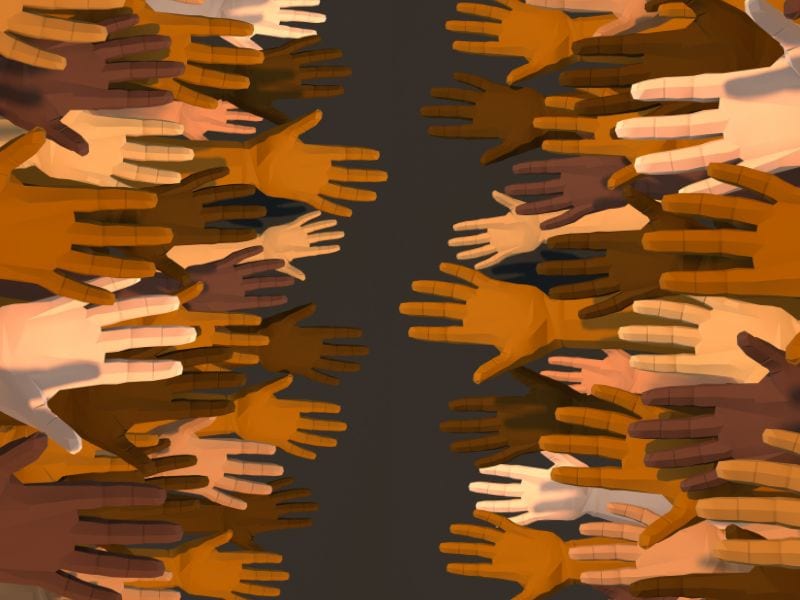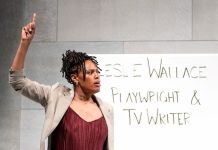It was back in 2017 that the Young Playwrights’ Theater (YPT) needed to do some internal work around issues of institutional racism and oppression. It hired some consultants, and worked with them for about 15 months, identifying issues, policies, and structures that were standing in the way of its anti-racism and anti-oppressive goals as an organization.
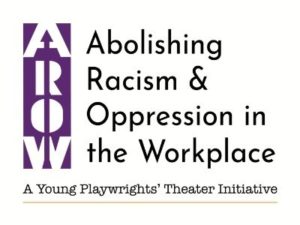
YPT also recognized it had the opportunity to share its experience with other arts organizations in the DC area. With that in mind, education director Jared Shamberger created AROW (Abolishing Racism and Oppression in the Workplace), a comprehensive engagement that supports companies in implementing meaningful antiracist and anti-oppressive policies and procedures within their own workplace.
“We presented our story at the 2019 DC Theatre Summit, and the reception was overwhelming,” says Shamberger, who serves as the program director and co-lead consultant for AROW.

“Over the last 10 years or so, theater has really tried to move in a direction of trying to be more inclusive and less oppressive, and I think it’s been moving slowly,” Shamberger says. “It never should have taken another example of police brutality against Black bodies, but since the events of last summer, with the murder of George Floyd and the We See You, White American Theater document coming out, a lot of theater companies realized this was the time to take this seriously. As a country, people wanted more than just rhetoric, more than just thoughts and prayers; they wanted actual tangible action, and theaters have ramped up efforts to do so.”
That was a big motivator behind the genesis of AROW.
Brigitte Winter, YPT’s executive director and co-lead consultant for AROW, notes because YPT is a full-time theater and arts institution and part of the community in DC, that’s what makes it different than consultants out there. The sentiment of YPT leadership is to send the message that any organization can and should begin this important and urgent work no matter what the demographics of their organization are.

“At the end of the day, supporting other organizations and becoming less oppressive benefits the entire community that we and the young people we work with exist in,” she says. “Our goal is this community becomes less oppressive and more focused on decreasing the harm of racism and oppression in the theater community.”
AROW started doing consulting in the spring of 2020, soon after things shut down due to the pandemic, with Theatre Washington coming on board as its first client. The DC-based alliance of theater organizations and supporters contracted AROW to design a Community of Practice.
“In partnership with Theatre Washington, we’ve organized 36 different theater companies and their leadership to come together and give them tools and tips on how to implement meaningful antiracist and anti-oppressive policies and procedures,” Shamberger says. “That started in January and just concluded this summer.”
To date, out of those 36 organizations, three have begun to participate with YPT’s AROW program at a deeper level of engagement. There are also six other organizations that have begun to work with AROW that did not participate in Community of Practice this summer.
Additionally, the AROW team has worked with specific institutions with more in-depth long-term engagements. In this scenario, over six months, AROW guides companies through five phases: discovery, values generation, structural and policy recommendations, implementation, and accountability.
Before working with them, AROW requires that organizations implement a non-retaliation policy so staff members feel they can share and disclose any experiences. This covers all staff, previous staff, board members, or artists who have worked at the organization.
Additionally, having a really firm conflict-resolution plan is vital so people know whom to go to when something goes wrong or something happens.
“Really creating a trust so people feel they can use that system when they need to, if they should need to,” Shamberger says.
AROW starts with a discovery process where the team gets to know leadership and staff and the concerns and goals of the organization it’s working with.
“We review their HR documents and their budget and really get to know the structures, policies, and practices, plus the mission of the organization,” Winter says.
There’s also a survey and interview process where AROW reaches out to a wide group of people from key parts of the organization, which for theaters would involve the staff, leaders, and board, as well as audience members, donors, and those who connect regularly with the theater.
“We ask questions about everyone’s experience working with the organization and how well it is or isn’t aligning with the goals that it has toward being an anti-racist theater,” Winter says. “We also do in-depth interviews with stakeholders, trying to do a mix of people who interact with the organization—usually about six of them—and these are much more in-depth.”
These conversations bring about issues and challenges that people have with an organization that they might be too shy about bringing up or worried about how the power is moving in the organization and what it could mean if someone came forward.
“We look for things that the organization may not have considered related to policies that they should have,” Winter says. “Very often, it’s things like not having a reporting structure for incidents of oppression happening within the organization. It could also be having siloed power in a way where even if the organization has diversity on staff, all the power is concentrated with white leadership.”
Once AROW collects all this information, it holds a retreat and pulls together stakeholders who are in position to make changes based on the findings of the report. They also discuss the values that the organization wants to hold moving forward related to being anti-oppressive and anti-racist.
“Then we will work with the organizations to come up with recommendations for actual change,” Winter says. “This could be changes to existing structures, policies that aren’t in place but should be, repair that has to happen for harm that has occurred. And then we come up with a plan for implementing those recommendations and provide coaching and document review.”
AROW will hold a follow-up with each organization every month to check in for accountability and how they are doing for achieving their goals.
To date, YPT has worked with seven organizations as part of AROW and 36 organizations were part of Community of Practice, though not all have been theater-related.
“The most useful tool that I have seen organizations start using after this process is a different way of analyzing every decision that they make,” Winter says. “The idea of having a values framework that they are moving forward every time a major organizational decision comes about.”
For example, if an organization is getting a lot of feedback that they are struggling with accessibility for their performances, they may decide that this is a value going forward; every time they do a production or make a decision if they want to produce something, this question of accessibility would be part of the early planning process.
Shamberger notes that changes will be embedded and better realized as shows start opening up again, as theaters live these new values, but it may be too early to start championing individual theater success stories.
“What we do know, even in the short-term, is it has changed how organizations think and view their roles within the community,” he says. “We’ve had some great conversations with theaters and we are looking forward to working with even more institutions to create a really strong, robust community of anti-racism and anti-oppression.”
Other Conversations, Other Consultants
But it’s not just YPT’s AROW program that our area theaters are turning to for help with important initiatives like these.
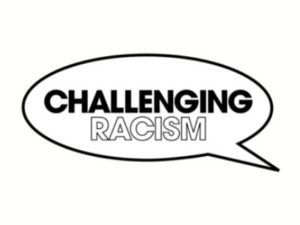

For example, on November 14, 2021, Keegan will host a discussion entitled “The Intersection of Race & Theater/Art,” following a performance of N, which details the 1921 play The Emperor Jones by Eugene O’Neill, which featured the first African American actor (Charles S. Gilpin) in a lead role on Broadway.
“Theater plays a vital role in our community as one of the most powerful platforms for storytelling and amplifying the voices of the unheard and unseen,” says Alicia Jones McLeod, Challenging Racism’s executive director. “It can captivate an audience, help us see through a different lens, compelling us to actively listen and endure messages that make us uncomfortable. It is a pleasure to work with Keegan on this project to empower and activate members of our community.”
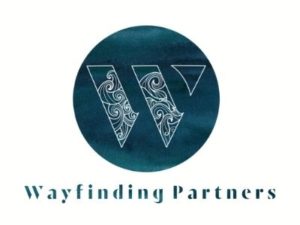
“Signature has adopted an anti-racism and equity statement, which has been distributed to all staff, is read at the top of every first rehearsal by a different member of the staff or company, and is distributed in writing to the production teams,” says Matthew Gardiner, artistic director. “This statement is intended as a living document, and Signature’s staff Anti-Racism & Equity Working Group welcomes all edits and suggestions from staff, company members, and board members.”
The statement reads:
Signature is committed to becoming a more equitable, anti-racist organization. In this company, we condemn all acts of racism, discrimination, and hatred, and will not tolerate any inappropriate and/or disrespectful behaviors.
Recognizing our status as a white-led institution, Signature is actively building an anti-racist culture and welcoming artists, staff, students, volunteers, donors, and audiences of all ethnicities and backgrounds. Signature has committed its time and financial resources to this effort; Signature’s staff Anti-Racism & Equity Working Group, Board Anti-Racism Task Force, and social justice and equity consultant Wayfinding Partners are leading the organization to discover, embrace, and implement new policies and approaches that will result in a richer, more equitable experience for all who interact with Signature.
We agree to face racism head-on, no matter how uncomfortable it may be, in order to maintain the safety of our spaces. We agree that each of us will work to acknowledge our own faults and accept the reality of our innate biases and prejudices, which we have learned over centuries and which we are responsible for actively unlearning. We agree to assume positive intent during our time together, while also acknowledging the powerful difference that can exist between our positive intentions and their negative effects. We will work as a team to learn and grow as individuals and as a group.
Theater is a powerful tool for building community and empathy, and all our lives are enriched when we welcome all people to share their stories. We recognize that the human experience comes in all colors, shapes, abilities, ages, backgrounds, gender expressions and identities, and sexual orientations. Signature is proud to use our art to shed light on our shared humanity.
Among the action that has resulted are conversations with the community, including meetings with Black Artist Coalition, and participation in the racial equity trainings and work with organizations across the DC region and nationwide; prioritizing BIPOC artists and stories in Signature’s programming; and the evolution and reconsideration of workplace culture, policies, and procedures through the lens of the We See You, White American Theater demands and other resources.
Whatever means a theater uses to get conversations started and changes happening is a step in the right direction.
“It’s all so important,” Winter says. “Just getting people to talk about racism and oppression regularly and developing that as a practice within their organization can lead to incredible cultural change.”
SEE ALSO:
Anti-racist theater and the #WeSeeYou movement: A Q&A with Nicole Brewer by Ramona Harper
Can white arts leaders become anti-racist “accomplices”? by Ramona Harper


